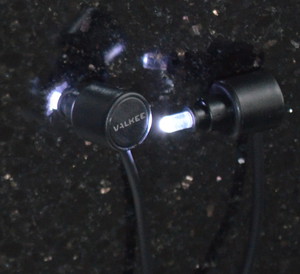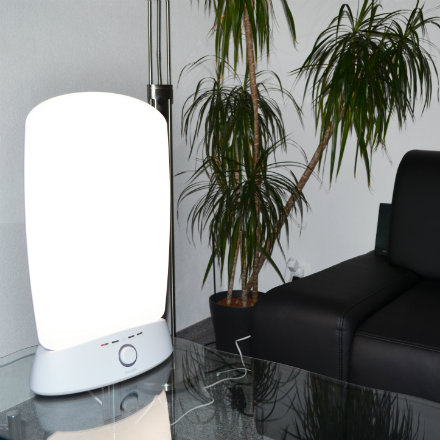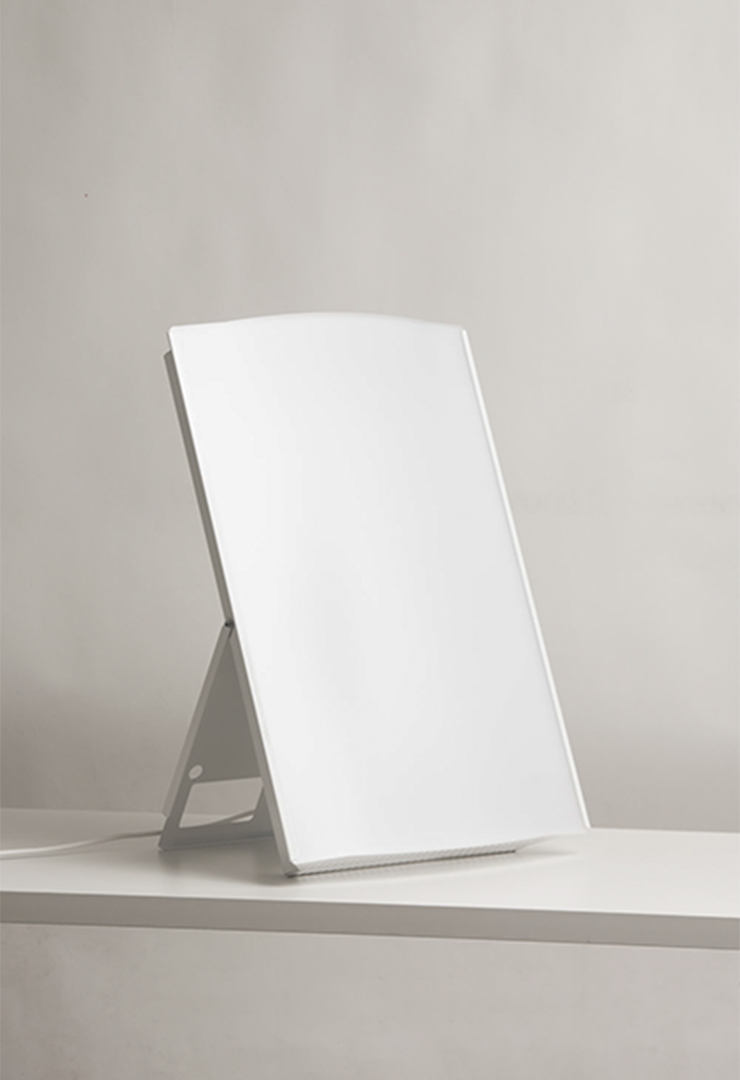An article by journalist Rosie Blau reveals how diverse the present range of research into the effects of light on humans is (1). Among others, Blau interviewed Satchin Panda, a professor of molecular biology and an expert on how our internal circadian clock operates. It is known that people need light because it influences the internal clock and our sleep-wake cycle, but Panda and his team noticed also, that the change in the tint of light at different times of the day is a significant factor. Ordinary artificial lighting does not follow this pattern of changing color. That is why the bluish glow of our computer screens may trick our brain into thinking that it is still daytime late at night.
The questions are, though: How much light is enough? Does it have to be natural or can it be artificial? What long-term effects does working in dimly lit offices have on us? There are still more questions than answers. Panda, too, concludes that light, as a research topic, is still very young.
The power of light is fascinating. Blau mentions, for example, a study that found hospital patients to recover faster in rooms that have particularly good access to daylight. Work productivity has also been seen to increase with brighter illumination. Even the performance of professional elite athletes increased significantly after daily transcranial bright light treatment over a few weeks, as it is shown in a Valkee study (2).
Nowadays, our daily rhythm of work and other activities are no longer synchronized by sunrise and sunset. In addition, the amount of sleep has decreased. Blau cites a study that found Americans to be sleeping 20 percent less now than they were a hundred years ago. Chronic deficit of sleep makes us vulnerable to mistakes and diseases or, in the case of children, to hyperactivity. The new term "social jetlag" refers to the hardship of Monday mornings when the internal clock is forced abruptly back to normal rhythm after the possibility for more sleep during the weekend.
Even though daylight is the best kind of light for humans, artificial light can also be used to help maintain one's good mood and to keep the internal clock in sync. Studies of the elderly showed a significant improvement in the quality of sleep and mood of people suffering from depression, if they were exposed to regular bright light every morning (3).
People who immerse themselves into the topic, or who study the effects of light for a living, are eager to pay attention to the light exposure at different times. Satchin Panda, for example, does not watch the TV or his computer screen after 9 in the evening.
Scientific research about the effects of light is making progress, but it will still take time before all the potential health benefits and the mechanisms of action are understood. It is, nevertheless, a relatively safe bet that taking care of getting adequate daily light may help us to live longer, healthier and happier. As Satchin Panda, at the end of the Intelligent Life article says, getting light wrong is not something that produces an immediate problem. It is rather the case that several years of inadequate kind of light can cause irreparable chronic problems.
1) Rosie Blau, The Light Therapeutic, Intelligent Life magazine, May/June 2014
2) Tulppo M. P. et al, Effects of bright light treatment on psychomotor speed in athletes; Front. Physiol., 12 May 2014
3) Lieverse R. et al, Bright light treatment in elderly patients with nonseasonal major depressive disorder: a randomized placebo-controlled trial; Arch Gen Psychiatry. 2011 Jan;68(1):61-70.
Wellnessproducts > Light therapy
Light matters. But why?The sun and its harmful UV-rays has been a known issue for quite a while. What is relatively new is the warning from scientists, that too little daylight can also have long-term harmful effects on our health.
 Published on 17.09. by  Improved efficiency thanks to light via the ear canal Improved efficiency thanks to light via the ear canalAnyone can already subjectively feel the extent to which sun and natural light can positively affect people's moods. Research now shows that exposure to sunlight can improve cognitive performance and attention. A test with athletes to whom psychomotor speed is an important factor yielded a surprising result.  Light therapy Light therapyDo rainy days or the dark winter months leave you feeling a bit gloomy? Try using a light therapy machine to add some natural light to your life - revitalizing and reenergizing your mood.  Innosol Supernova LED bright light, 160W LED , CHF 599.00 Innosol Supernova LED bright light, 160W LED , CHF 599.00With dimmer, 10.000 lux at 85 cm distance, 160W LED, 63.5 x 40.5 x 11 cm |
- FREE DELIVERY (ECONOMY)
- Safe shopping: Payment with invoice, credit card, Paypal or Postfinance
- Warehouse in Switzerland (Widnau SG)

